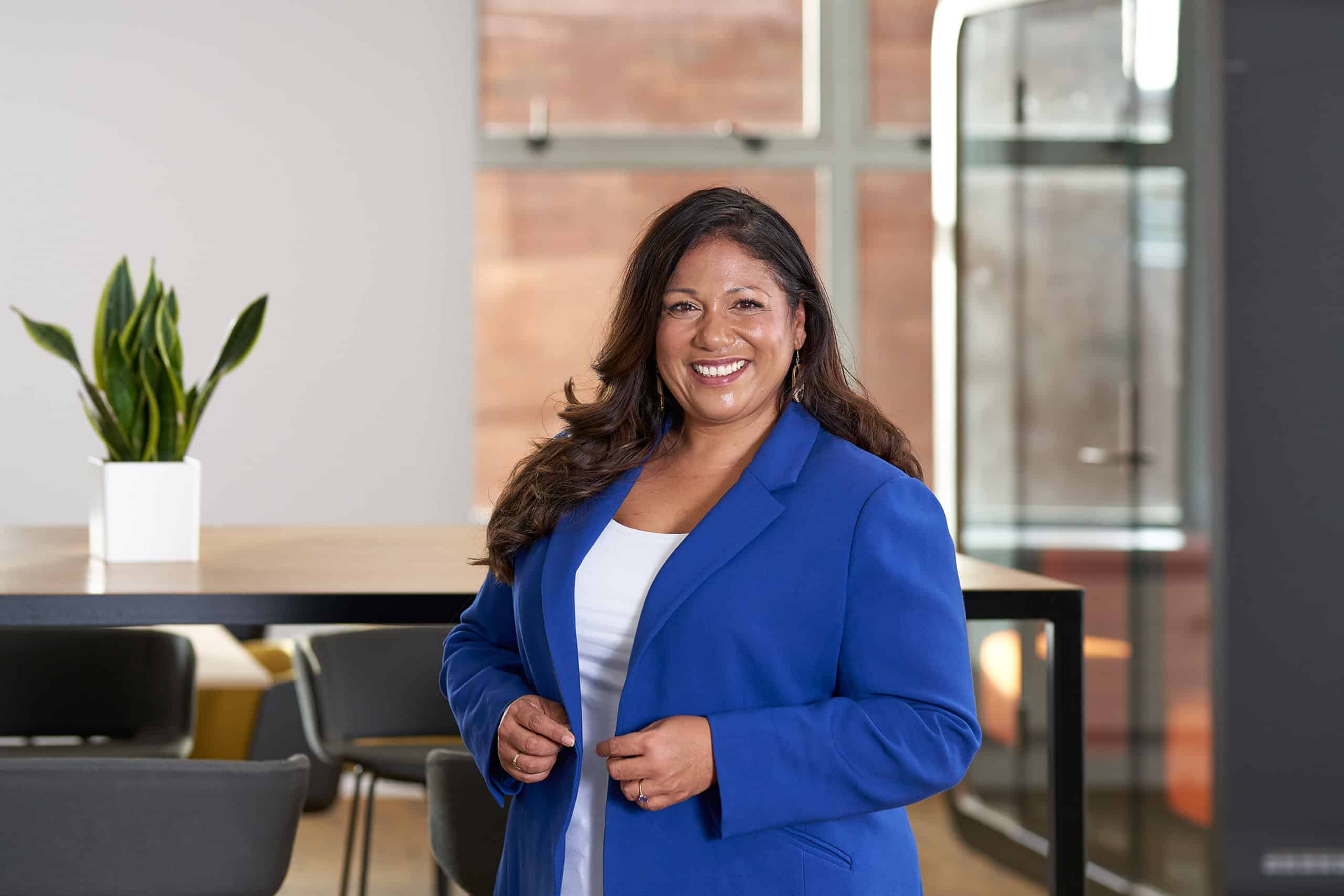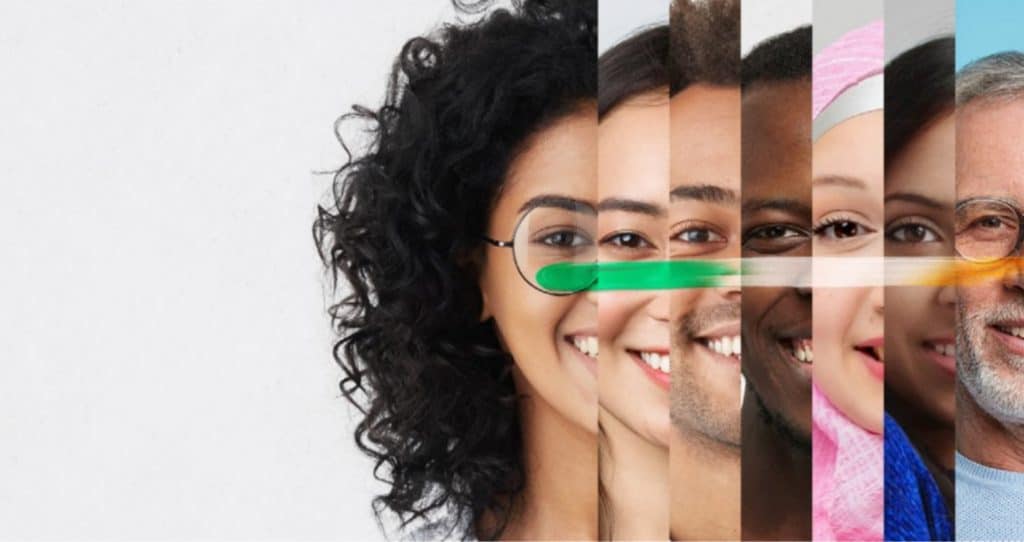Design by Moira Malone
Melissa Bosch, Head of Diversity Equity and Inclusion, EY Ireland, writes about Ireland’s ethnic and cultural diversity and the drive towards a more inclusive society
Note: This piece was originally published in the December 2022 issue of Business & Finance magazine.
Not too long ago the Republic of Ireland would have been described as made up of predominantly white, Catholic, English speakers – a homogenous society and culture. There has been a seismic change since the mid-1990s with the influx of immigrants driven by the Celtic Tiger. I have certainly seen a shift over the last 12 years living in Ireland. There has been an explosion of ethnic and cultural diversity – people from different geographic regions, bringing their languages, heritage, religions and customs. This has catapulted Ireland into a multinational, multi-cultural, globalised society. The recent census data confirms this with immigration only being higher once in the previous 30 years. The CSO’s Population and Migration Estimates report shows 645,500 non-Irish nationals living here last April, making up 12.9% of the total population.
What does this mean for the land of a thousand welcomes?
While the census conflates race and ethnicity, it does show us two key things: Ireland is changing and we have a rare opportunity to shape the narrative by truly understanding what the lived-experience is for ethnic minorities of Irish, mixed or immigrant background.

Melissa Bosch, Head of Diversity Equity and Inclusion, EY Ireland
In a full employment market, organisations have become a key driver of the influx of international talent. As organisations welcome more people from abroad, they are reshaping what it means to be Irish and these businesses have a role to play in fostering intercultural relations. Offices across the island have become microcosms of a demographically changing Ireland and case studies for challenges facing Irish society today.
We cannot ignore the social challenges that ethnic minorities face when joining organisations rooted in Irish culture, which can drive insider outsider dynamics. The dominant culture has the privilege of being the ‘Insider’ group and tend to benefit from unconscious bias. They have formal and informal power to create the rules and set and fit the norms an organisation works to. These individuals and groups are usually well-intended and unaware of their cliques and don’t always realise there are outsiders. Because ‘ah-sure we’re all the same, right?’
For ‘Outsiders’, these interactions signal how ethnic minorities need to adapt to their environment. In this case ethnic minorities don’t set the norms but are still expected to adhere to them and figure out all of the unwritten rules. They broadly decide through these interactions whether they belong or not. They are very aware of the inequities and will expend significant energy and focus trying to fit in. Sometimes this includes having to cover or edit themselves to assimilate. This can make them feel under-valued for their unique abilities, which limits full contribution, engagement, and performance. It can be incredibly subtle and unintentional but usually has the consequence of stifling top talent.
EY Ireland has 76 nationalities represented at the firm, each with its own unique rich culture and background. EY prides itself on creating the right environment to unlock potential by valuing difference because diversity, equity and inclusions strengthens EY’s ability to serve clients. As head of Diversity Equity and Inclusion, my role at the business is to strategically direct and embed the culture and practice of equity and inclusion. I see ethnic and cultural belonging as a two-way process in which all represented ethnicities build intercultural connection, flex, adapt and change by building cultural intelligence and valuing difference. In these situations, both the dominant culture and the ethnic minority group need to put in the work to adopt, acquire and adjust to a new cultural environment when they arrive into the firm, or when another culture is introduced to the team.
Beyond the warm welcome, what can individuals and business do to drive inclusion, belonging and integration? – Focus on Equity and building Cultural intelligence.
Inclusion doesn’t just happen. It takes commitment, curiosity, compassion, and consistency. As the dominant culture we want people to integrate not assimilate. So, we need to go beyond the thousand welcomes and truly recognise the lived experience of an ethnic minority and the challenges they face. Ireland is highly networked. It can be difficult for an ethnic minority to understand how to break into the network and build meaningful relationships.
The dominant culture has the privilege of being the ‘Insider’ group and tend to benefit from unconscious bias. They have formal and informal power to create the rules and set and fit the norms an organisation works to.
As the dominant group it is important to develop the skills to recognise how advantage and disadvantage is working, and then take action to disrupt that. This could be through purposefully developing the diversity of your own network and in so doing helping ethnic minorities to build social capital and develop their networks. It is a small but purposeful action that will allow the ethnic minority to develop meaning in different contexts and with different people that build strong and ephemeral relationships that afford them the ability to navigate Irish cultural nuances.
Each of us has an opportunity to rethink, reimagine and reshape ourselves, our workplaces, our society. This means continually learning, unlearning, and relearning. By building cultural intelligence one must continually challenge biases, assumptions and adjust behaviours to adapt to different cultural contexts. It means going beyond ticking the diversity box and purposefully looking at inclusive and equitable behaviours and practice.
Like an iceberg, many aspects of our identity may not be visible to others. It means seeing and valuing the difference ethnic minorities bring not just their diversity dimension. Then enabling them to create and maintain a sense of self and their own personal identities by understanding their uniqueness, their skillset, what drives them. This where the hard work is. It requires a focused behavioural shift to recognise and challenge bias, behaviours and truly seeing the world from someone else’s perspective. Then empowering the individual or group to fully participate and continually seeking out ways to support their sense of inclusion and belonging.
Is it achievable? Yes! Over 12 years Ireland has become home. It has seeped into who I am and enriched my identity. I have carved out a space to be uniquely me. To bring my skills, expertise, purpose and passion. I have developed my cultural intelligence and navigated how things are done in the Irish context. Now I identify ethnically as Afro-Irish, still honouring my South African heritage but also recognising that Ireland has changed me and that I have changed Ireland.
Read more:
The impact of Ireland’s EU membership on women

